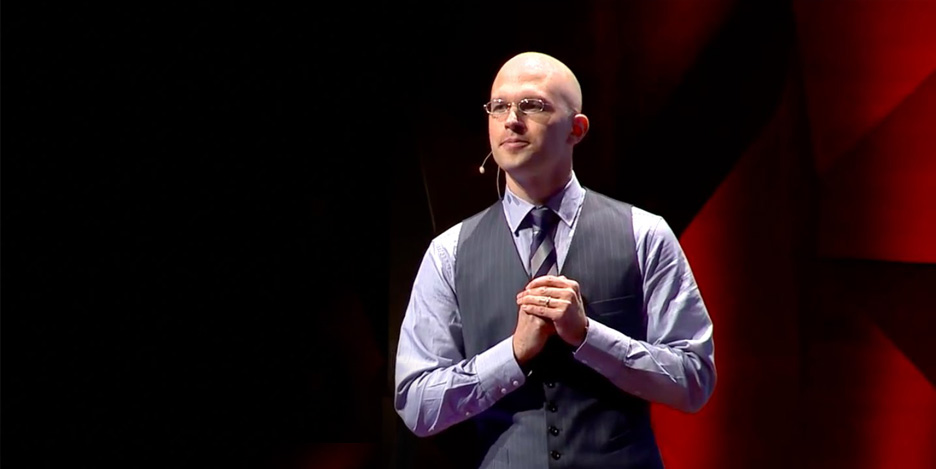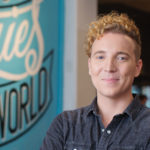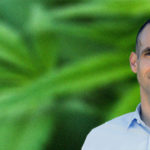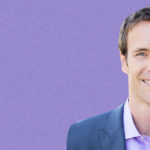This week’s guest on Famous Failures is Josh Kaufman.
Josh Kaufman is the author of two international bestsellers: The Personal MBA: Master the Art of Business and The First 20 Hours: How to Learn Anything . . . Fast!
Josh is one of the top 100 business authors in the world, and has been featured as the #1 bestselling author in Business & Money, as ranked by Amazon.com. His TEDx talk on The First 20 Hours has been viewed over 6.7 million times worldwide, putting it in the top 10 most-viewed TEDx videos and top 100 most-viewed TED talks published to date.
You’ll learn:
- How to know when to quit your job
- Why it’s a good idea to start your side hustle before you leave your corporate job
- Why Josh went through nine drafts of The Personal MBA before settling on a structure
What’s the most valuable failure you’ve had in your life? What makes it valuable?
When I enrolled in college, I thought I wanted to be a computer engineer. My thought process was straightforward: I was “good with computers,” and engineering is a respectable, well-paid profession. No brainer, right?
Turns out I care more about what people do with computers than how to make a microprocessor a tiny bit faster. The engineering thought process interested me, but the practice of engineering did not. It became very clear in my first year of studies that Computer Engineering was very much not for me.
That realization prompted a major crisis of confidence: my future plans were in shambles, and I had no idea what I wanted to do with my life. Even worse, this was the first major adult objective I set for myself, and quitting felt like admitting defeat: a very visible signal to my family and friends that, contrary to appearances, I had no idea what I was doing.
In retrospect, walking away from engineering was one of my best life decisions. I explored different subjects: law, design, philosophy. In the end, I chose to study business, primarily because it’s intrinsically interdisciplinary. You use knowledge from all of these subjects – including engineering – throughout the course of day-to-day business practice. That appealed to me at the time, and still does today.
Both of my books, particularly The Personal MBA, were heavily influenced by this period of failure and subsequent exploration. It was an important lesson about the value of exploring something long enough to determine “this is not for me,” and being okay with that outcome.
What’s the most difficult failure you’ve had in your life? What advice do you wish you had when you were navigating that failure?
My first job out of college was at Procter & Gamble, a Fortune 500 consumer goods company. I started working for P&G in college, building websites and email marketing programs for household cleaning brands like Dawn, Cascade, Mr. Clean, Swiffer, and Febreeze.
By the time I graduated, I had a full-time job as an Assistant Brand Manager. The position was a leadership development program of sorts. Every 18-24 months, you’d move to a different part of the company, to learn all of the various aspects of the business.
P&G is famous for its “up or out” culture: you either work your way up the corporate ladder to senior positions, or you find a position outside of the company. Your job is to do well enough in each role to justify promotion.
My first marketing role, product development, was fantastic. I was talking to scientists, doing consumer research, figuring out the manufacturing and supply chain details, and making sure the financials worked. The work was engaging, and I was learning a lot.
Unfortunately, I could only stay in that role for a limited time. My subsequent role in retail marketing support (which included things like making the types of product displays you see in the aisles of your local supermarket) was not my cup of tea. And as I looked at the other roles in my future, I found they didn’t appeal to me either: most of them involved sitting in meetings, often to prepare for other meetings. (My record is four levels of recursion: a meeting to prepare for a meeting to prepare for a meeting to prepare for a particularly important meeting.)
I also looked at my superiors – my boss, and my boss’s boss, and the Vice Presidents and Presidents above them – and realized that, if I were offered their job, I wouldn’t want to take it.
That meant my time with the company was limited.
At first, I had a similar response to leaving engineering: I’ve failed at my first job out of college. What’s wrong with me?
Eventually, I came around to a different way of thinking about things: what if this particular job just isn’t a good fit for who I am and what I want to do?
This type of mental reframing is extremely valuable. Instead of outside forces being the judge of your success or failure, this way of thinking shifts the locus of control and judgement back to you, where it belongs.
Is what you’re doing right now working? Great – keep doing it. If it’s not, there’s no need to get down on yourself: it’s just a signal that something in your world needs to change, and you’re now in possession of much better information about what works and what doesn’t, so you can decide what to do next.
You’ve authored two international bestsellers, The Personal MBA and The First Twenty Hours. What roadblocks did you experience in leaving your previous position with Procter & Gamble and entering the publishing world? And how did you overcome those roadblocks?
Leaving the perceived security of a huge company to start my own business was a major step. After working for a major international corporation for a while, you get used to certain things: a steady paycheck, decent benefits, and a built-in measure of social respectability. If you leave, those vanish.
My dad was a public educator for over 30 years. Income-wise, I made about as much in my first year working at P&G as he did by the end of his career. When I quit my secure, well-paying job, he thought I was insane, and he was justified in thinking so.
One of the things that made the transition easier was that I started my consulting business on the side, after hours. It required significant tradeoffs: I didn’t have much of a social life, and my hobbies and other interests suffered for a while. But the ability to build my business to a sustainable level before leaving my job made the transition much easier than it would’ve been otherwise.
By the time I formally resigned from P&G, I had a sizable roster of consulting clients and a course in the works. The publishing deal for The Personal MBA was signed shortly after.
How are you failing right now?
I’m in the midst of writing a new book, which means failing every day.
I’m drawn to projects that require understanding a huge universal problem, identifying a workable approach to solving it, and trying to explain that approach to a general readership in plain language. Turns out those projects are intrinsically difficult. (Who knew?)
For better or worse, my writing process resembles picking a particularly interesting brick wall, then banging my head against it until the wall surrenders.
I went through nine drafts of _The Personal MBA_ before I found the structure the book needed to work. I would’ve loved to skip the first eight drafts, but that’s not possible: I wouldn’t have done the exploration necessary to discover what worked and what didn’t. You can’t just rush to the conclusion and skip the difficult bits.
That’s okay. That’s the work. If I want a book to exist, I have to be willing to do what it takes to see the project through to completion.
As far as I can tell, this is a universal reality. Work, particularly creative work, is intrinsically difficult. Just knowing that, and being prepared for difficulty, makes it easier to keep going.
Bold



